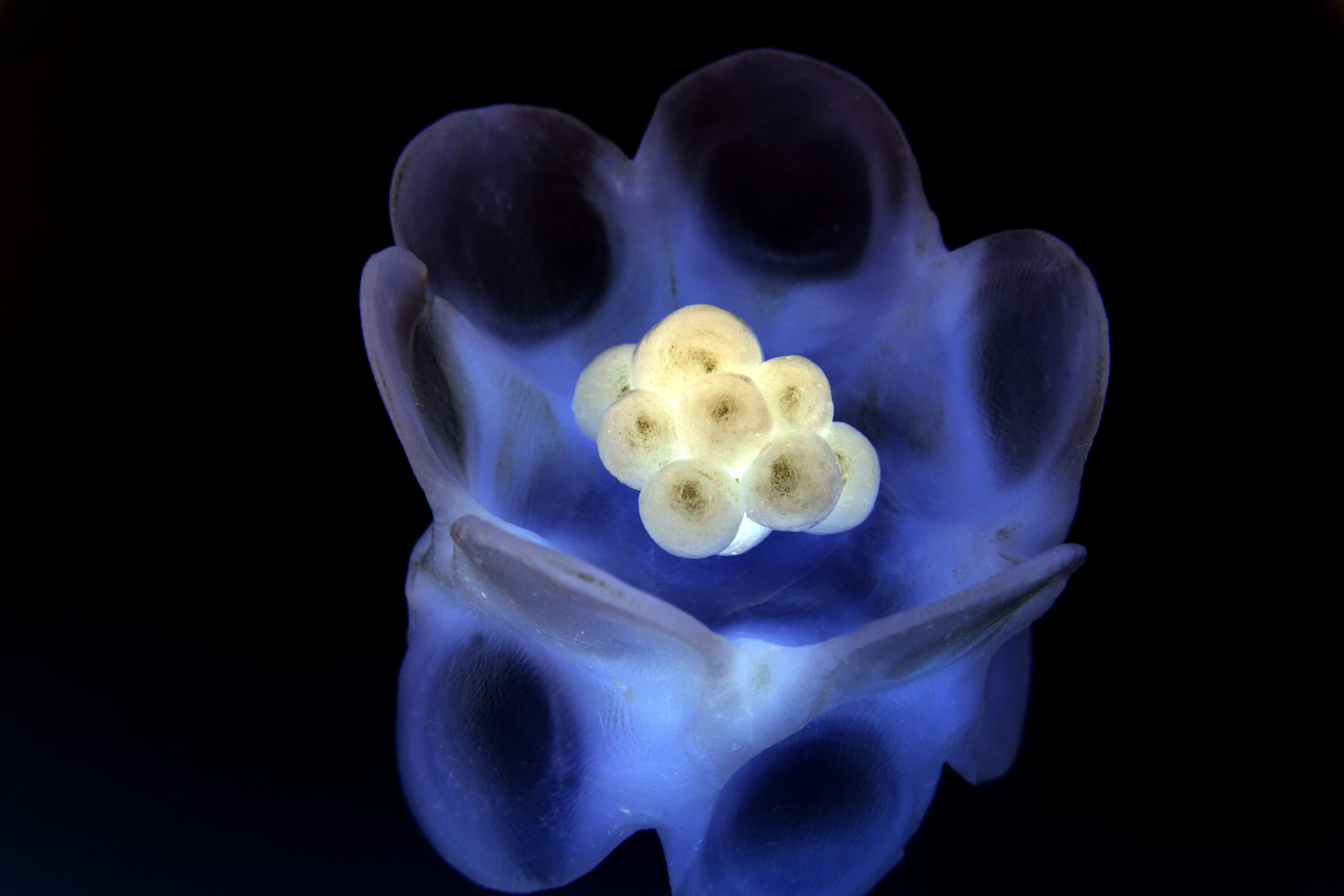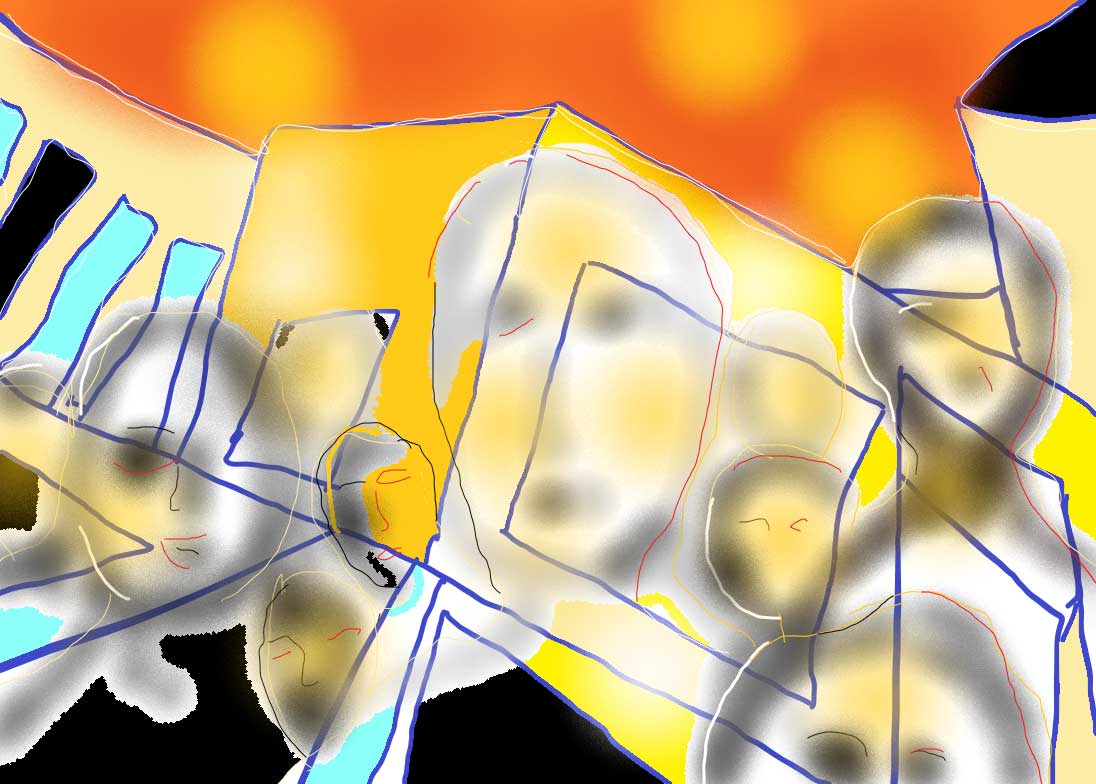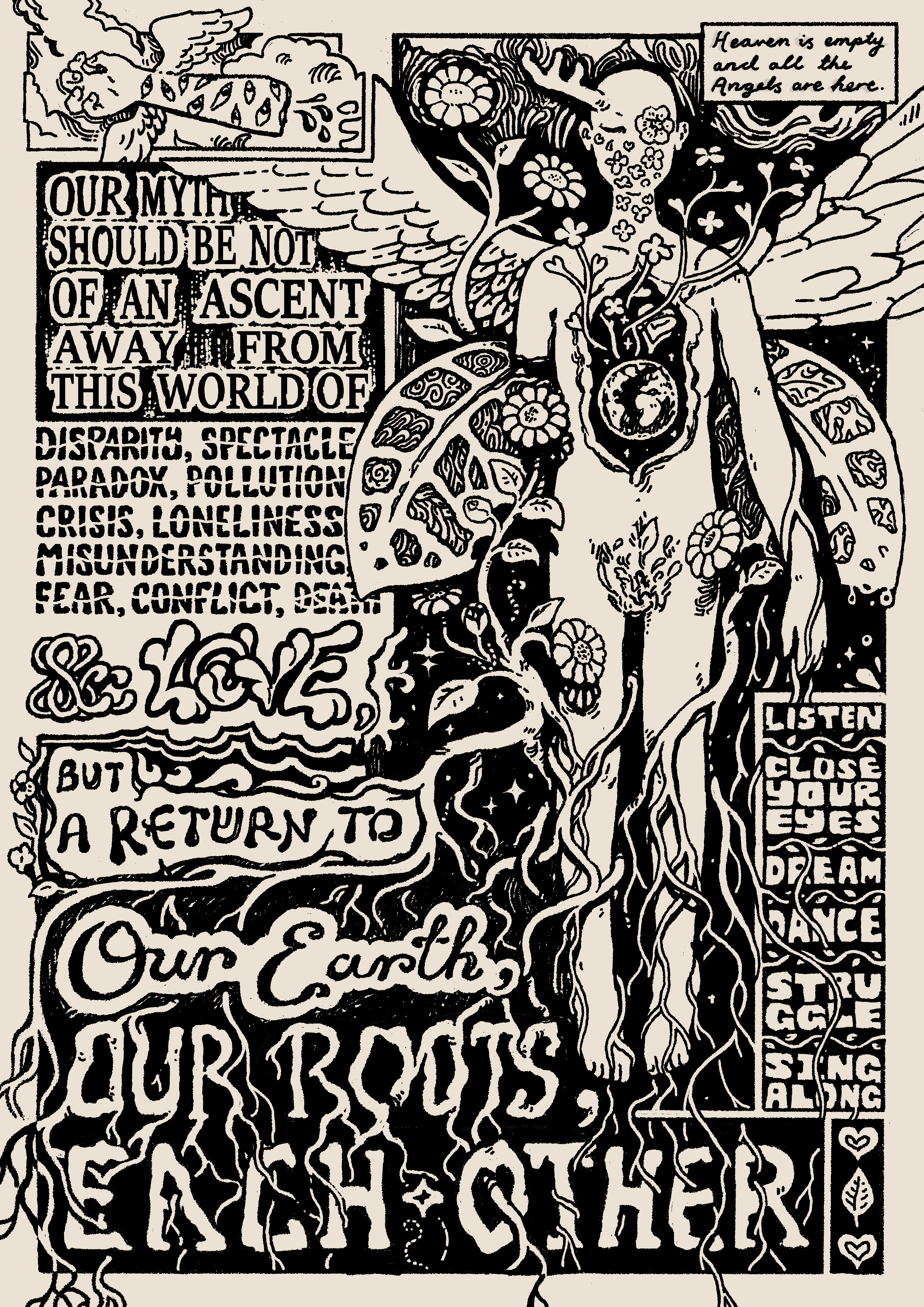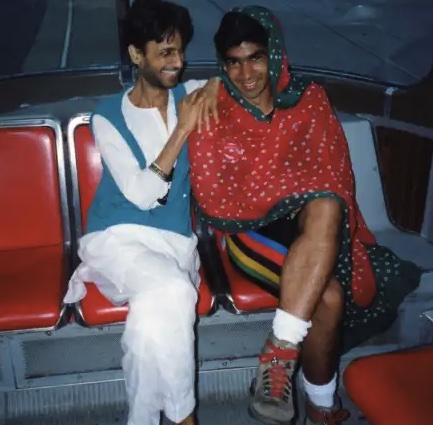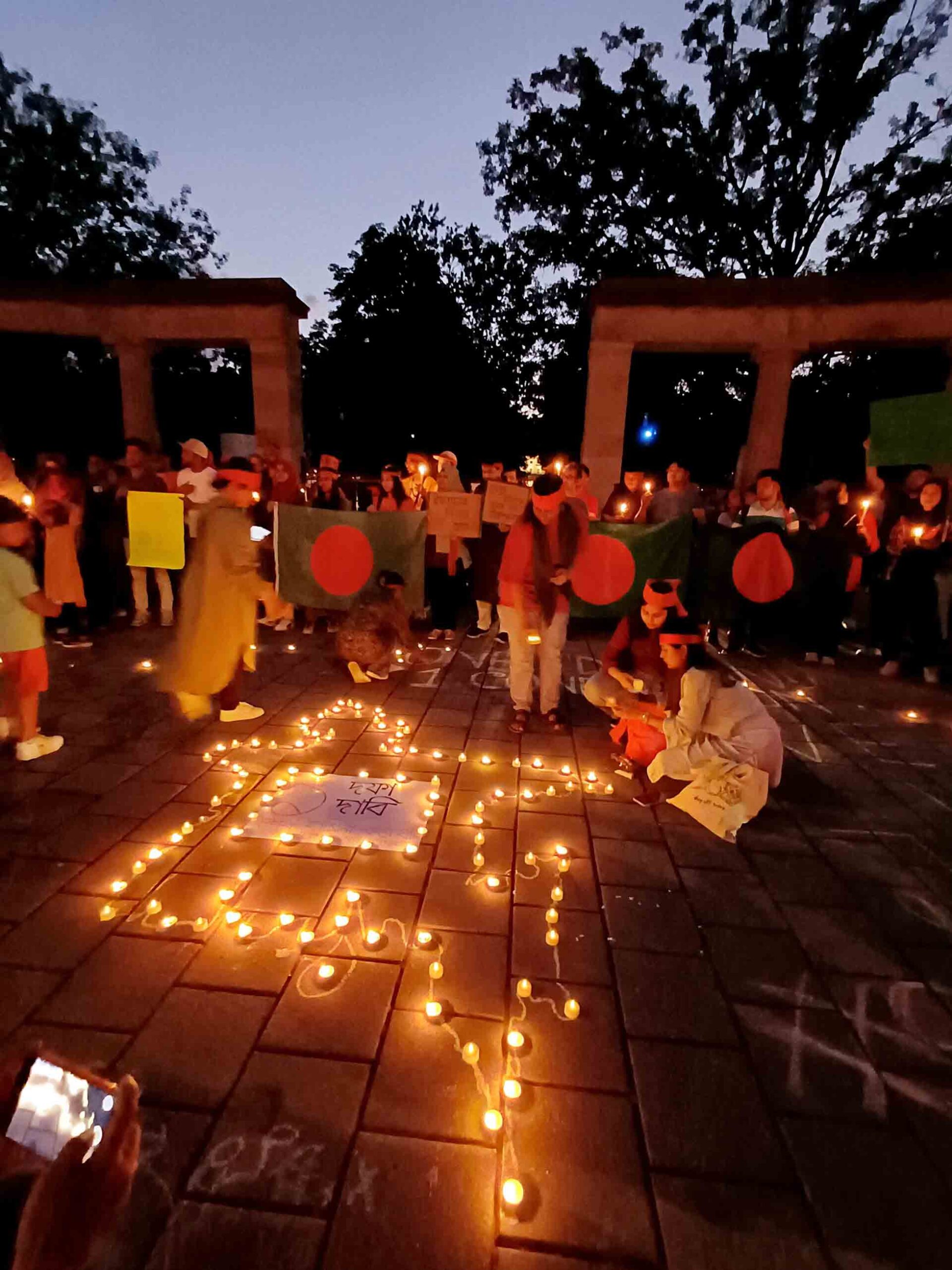My father always said that the first stories were told in song: the chirp of birds, the hum of insects in the summer heat, and the whistle of high winds through the trees. Before humans created their spoken and written languages, they found other ways of telling tales.
Each family has its own method, and ours was through music. My dad owned a plethora of instruments – acoustic and electric guitars, an upright piano, saxophones of all sizes. He had wanted to be a famous musician, to see his name and face splashed across magazine covers and billboards. But his dreams receded along with his hairline, and he instead became a high school band instructor while performing on the side for weddings and anniversary parties.
Dad didn’t have a home studio. It wouldn’t have made a difference if he did – the walls of our home were so thin you could hear a rat fart from the basement if you were on the second floor. My father played where he wanted, whenever he wanted, and my mother claimed it drove her up the wall. But she never failed to laugh when he serenaded her on the bongo drums or plonked away on the piano while she was stuck on an unwanted phone call.
Whenever my friends visited, I showed off my dad’s collection as proudly as if it were my own. I wasn’t allowed to have boys in my room, but we could touch my father’s instruments – I taught my friends to treat them with respect as I had been taught myself. We jumped around my bedroom and roared made-up lyrics until the walls shook. We entertained fantasies of forming our own band, but none of them came to fruition.
For years I looked back on those moments while imagining the sound of dozens of musical instruments warming up at the same time, my own private orchestra preparing for a symphony. I heard it everywhere. It flooded my brain when I was idle, or before I went to sleep. I would close my eyes and watch the shadows play behind my lids while the vibrations molded and shaped my dreams.
I was seventeen when my father began to act strange – or strange by our standards, at least. He jerked his head at random intervals, as though he’d heard something no one else did. I often caught him digging his fingers into his ears and working his jaw. After several days of this, Mom lost patience and asked what he was doing. He brushed her off. Just a bit of water in my ear, that’s all.
It got to the point where he could no longer sleep. He told my mom that a sharp whistle tormented him every night as he lay in the darkness. He was eventually given a formal diagnosis by his doctor: he had tinnitus, caused by age-related hearing loss. He wasn’t at the point yet where he needed a hearing aid, but she recommended he use a white noise machine to help him sleep. We bought one online, a fancy device that claimed to emit a variety of sounds according to the user’s needs. My father fiddled with it for hours before losing patience. He finally opted for the most basic setting, a loud, continuous buzz that reminded me of a broken television.
Dad played music less and less, convinced that he needed to give his ears a break so that the ringing would go away. Our house was filled with faint, intermittent ditties during the day that were replaced at night with the drone of the white noise machine. It seeped through the walls and drowned out the tuning orchestra I used to hear before I fell asleep.
None of us liked it, but no one hated it more than my mother. She complained to my father that the machine kept her up at night. It was supposed to lull people to sleep, he pointed out, but she resisted. I figured she despised the thing so much that she gave herself insomnia over it on principle.
As the years passed, my dad slowly got rid of his instruments. He did it of his own volition; the tinnitus never went away as he’d hoped, and he seemed to fear it would worsen. The piano was the first to go, since it took up the most space. Then he sold the bongo drums, the trumpets, and finally the saxophones. He kept his acoustic guitar, the one instrument that had accompanied him through every major change in his life, from his high school graduation to his marriage to my birth. He claimed it was too beat up to sell – the sound board was scratched, and the neck had been broken more than once. He loved it, though, as much as one can love an inanimate object.
By the time I moved out, the orchestra in my mind had whittled down to a five-player band tuning to the thrum of the white noise machine. It appeared in my dreams, good or bad. It permeated my memories. I tried to build new ones; I bought a guitar once I had the money, but I plucked at its strings unenthusiastically for a few weeks before placing it in a corner like a glorified hat stand. Any thought I entertained of picking it up again was dismissed in favour of doing something else. I would balance it on my lap and pretend to play during parties or if I had boys over, but every part of it felt unfamiliar beneath my fingers. There would be time later to get better acquainted with it, I told myself.
I called my mom at the end of every week, and my father’s movements were so audible in the background that I knew what he was doing even if he was rooms away. It was always just my mom and me on the line, but every conversation revolved around him. It was during one of those phone calls that I found out he had been fitted with a hearing aid.
He still sleeps with that machine on, though. The disgust in her tone was palpable.
It took Dad a few months to get used to the hearing aid, and when he did, it became his most favourite thing in the whole world. Although he never liked talking on the phone and avoided it whenever he could, he came on the line to gush about the hearing aid, a new plaything for him to enjoy. Isn’t technology great? I love the twenty-first century!
With a little help from the internet, he’d discovered a way to stream music directly to it, and my mom reported that he was now sashaying around the house, humming to himself and mouthing lyrics. He would grab her from behind and twirl her around until she collapsed in his arms, laughing. She often answered the phone breathless, with a smile in her voice. The music in their home had become the kind only my father could hear. I wondered what melody my mom imagined while they danced.
They continued on as such, in this new version of normalcy. I thought it would last a long time.
#
In a childish way, I hoped that my parents would live forever. My life was stable at first glance – I worked, I paid my rent – but if I fell, only they would be there to catch me. During difficult moments I found myself wishing I could go home to them. Their house remained my refuge, despite everything. But time marched on: my mother confessed that she and my dad rarely danced, since it put too much strain on their backs. He no longer played his guitar due to arthritis. He continued to stream music into his hearing aid, but it lulled him to sleep.
There was a way to reinvigorate them, I was sure of it. My friends’ parents, who had seemed so dull to me years ago, hadn’t turned out like this. I passed along stories of blind men taking cooking classes and women with bad knees hiking trails every weekend, but my parents’ response was lukewarm. I tried not to blame them. After all, what did I know? My own guitar was still collecting dust.
My mom left us first. That didn’t surprise me: she had dwindled the most, and she’d confessed to me more than once that she was tired and ready to go. Her death was her final surrender to the white noise machine, which had continued to drone on into the night despite her protests. My father used to joke that I should keep it to bury with her if he happened to pass away first.
She was laid to rest at midday while traffic roared down the road that passed alongside the cemetery. The sky was a clear, brilliant blue that held the promise of warmth despite the frost on the grass. I kept my eyes on the neighbouring gravestones as I half-listened to the priest’s eulogy. I imagined the buried whispering to each other after the living left for the day. I wanted to put my ear to the muddy ground and eavesdrop on them. I wanted to know if my mother had any final words for me – there was so much between us that had been left unsaid.
When my father and I returned home, the house had a different air, as if someone had been inside while we were gone. Everything felt misplaced, even though all objects were in their usual spots. I went through every room and opened the doors and windows before closing them again. I eventually wandered into the kitchen and sat at the table across from my father. His face was impassive, unchanged since the day he’d given me the news of my mother’s passing. Our eyes met and he held my gaze, and in that moment we became each other’s reflection.
The house was filled with silence. It surrounded us, suffocated us, until it became a presence of its own and another occupant. It sat on one of the chairs between us and lay in wait for me in every corner. It invaded my mind and replaced the white noise that dominated my memories. I opened my mouth to dispel it, but no sound emerged. My father and I had nothing to say to each other.



